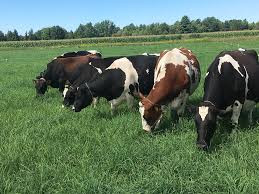
TSHOLOTSHO has taken a significant step towards sustainable agriculture and conservation with the launch of the Ngamo Livestock Farm and Agricultural Training Project, a pioneering initiative aimed at mitigating human-wildlife conflict while boosting livelihoods.
The Ngamo Livestock Farm and Vocational Centre in Zimbabwe is an initiative for Wilderness through Children in the Wilderness in partnership with International Union for Conservation of Nature.
Located between the rural communities of Ngamo and Ziga, near Wilderness Linkwasha in Hwange National Park, the farm is part of the Kavango–Zambezi Transfrontier Conservation Area. The project was launched in July last year.
The project is aimed at leveraging on the region’s suitability for livestock farming by establishing a community farm with an abattoir while also providing economic and educational opportunities for locals. The courses offered will be HEXCO-certified.
Speaking at the official opening, Environment, Climate and Wildlife minister Sithembiso Nyoni emphasised the project’s role in balancing agricultural productivity with conservation efforts.
“This project is very important because it’s trying to manage human-wildlife conflict,” she said.
“What ZimParks is doing here ensures that animals are kept away from people by providing them with food and water, while humans coexist in a controlled environment.”
The Ngamo Farm and Agricultural Training Project integrates livestock breeding, pasture management, feed formulation and vocational training for young farmers.
With 40 students already enrolled, the initiative is shaping a new generation of skilled livestock managers and conservationists.
Tsholotsho, located in a region prone to human-wildlife conflict, has long struggled with elephants and predators threatening both crops and livestock.
The farm incorporates predator-proof kraals and a pilot mobile predator-proof, designed to protect cattle while maintaining ecological balance.
“You can see the way the kraals are organised,” Nyoni said.
“Even if lions or elephants come, they will not be able to reach livestock. This is conservation and human-wildlife relationship management at its best.”
The project also aligns with Zimbabwe’s National Development Strategy 1 and the Sadc Biodiversity Strategy and Action Plan 2025-35, which emphasize biodiversity conservation, sustainable resource management and economic empowerment.
Beyond conservation, the project is set to become an economic driver for Tsholotsho.
Wilderness Zambezi impact manager Sue Goatley highlighted key sustainability efforts, including Expanding Herding for Health practices — training more farmers in sustainable grazing methods to restore habitat and minimise human-wildlife conflict.
She said partnering private sector buyers, such as Wilderness Safaris camps, would ensure consistent income streams for farmers.
Vocational training programmes, Goatley said, would equip community members with practical skills in agriculture and livestock management.
The project plans to establish an abattoir to improve meat quality and increase revenue for local farmers while expanding cattle and goat breeding programmes to enhance livestock productivity.
“As we gather here today, let us reaffirm our commitment to conservation, community upliftment and sustainable development. Together, we have the power to create positive change and build a legacy of hope and prosperity for all,” Goatley said.
The Sadc TFCA financing facility team leader, Kudakwashe Chigodo, said the initiative was not aimed at the communities in Ngamo but at the region.
“This is also a demonstration of the early results of the work that is being supported by the Sadc TFCA financing facility. We wish to draw so many lessons from this project, make use of it as a pilot project that can help us to provide several lessons to other communities to also seek support from the financing facility,” she said.
Chigodo said the long-term vision was to raise additional funding, either to scale up such successful projects or to support new projects.
Chief Matupula applauded the project, saying it would uplift the community.
“This programme will benefit the residents and currently, 40 students are enrolled. We are proud to have such an initiative in our area. Students will learn farming, livestock management and other essential skills,” he said.










